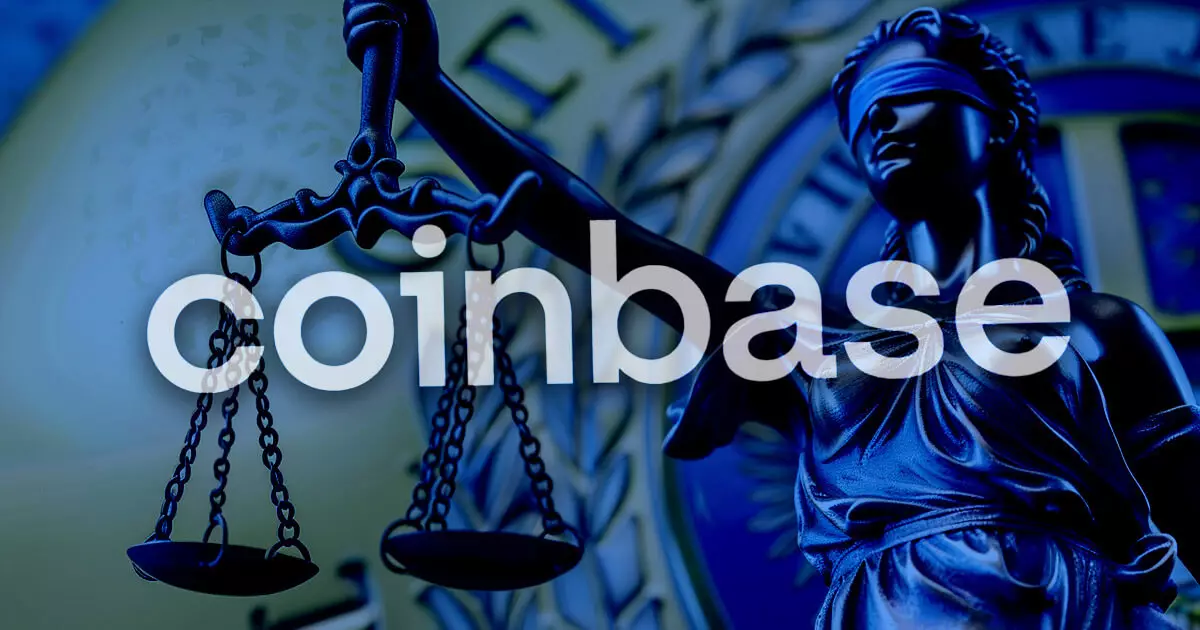The intersection of cryptocurrency and regulation has become a battleground, especially with high-profile cases such as Coinbase’s ongoing lawsuit against the U.S. Securities and Exchange Commission (SEC). Seeking to access internal SEC documents, Coinbase is attempting to illuminate the regulatory body’s enforcement strategies toward the thriving crypto sector. This conflict transcends mere corporate grievances; it reflects a broader struggle for clarity and fairness in the face of an evolving technological landscape.
At the heart of this legal drama is a Freedom of Information Act (FOIA) request initiated by History Associates, a firm hired by Coinbase. This request aimed to uncover the SEC’s position on the classification of various digital assets. Initially, the SEC invoked FOIA Exemption 7(A), which shields documents related to law enforcement activities from public disclosure. However, in a surprising turn, the SEC later recognized that this exemption might no longer be relevant. Despite this admission, the SEC has proposed a staggering three-year delay in reviewing requested documents, citing the need for further examination of records potentially linked to law enforcement.
In light of these bureaucratic hurdles, Coinbase has suggested a two-pronged approach to expedite the process. This strategy aims to prioritize internal SEC communications while postponing the review of third-party documents. Coinbase’s approach hints at a sense of urgency within the firm, driven by the desire for clarity on how the SEC interprets and applies securities law in the fast-paced crypto environment. This need for clarity is particularly pressing given the ambiguity surrounding the classification of tokens, which has left many in the industry anxious about compliance and potential penalties.
The FOIA request also sheds light on Ethereum’s transition from a proof-of-work to a proof-of-stake consensus mechanism, a subject of significant interest and concern within the crypto community. Furthermore, attention has been drawn to the SEC’s earlier case against Zachary Coburn, the founder of EtherDelta, who was accused of operating an unregistered national securities exchange— an allegation that set a legal precedent within the space. The implications of that case and its resolution, involving nearly $400,000 in disgorgement and penalties, highlight the complexities crypto companies face under existing securities laws.
Coinbase’s ongoing legal battle is emblematic of a larger struggle within the cryptocurrency industry, which is grappling with regulatory uncertainty and an often perceived overreach of authority by the SEC. As the digital asset landscape continues to evolve, the outcomes of these legal maneuvers could set critical precedents that will shape the future of crypto regulation. Coinbase’s quest for transparency and a fair legal process underscores the urgent need for the SEC to clarify its stance on digital assets, not only for the benefit of one company but for the broader crypto ecosystem that impacts millions of users worldwide.
The conflict between Coinbase and the SEC may appear as a specialized legal issue, but it resonates deeply with a wider narrative concerning innovation, regulation, and transparency. As both parties navigate this complex legal framework, the industry waits with bated breath for the repercussions that may arise from these proceedings—ultimately, the outcome could significantly influence how cryptocurrencies are treated under U.S. law for years to come.

